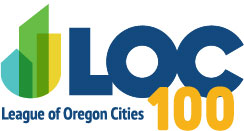LOC News
HB 2816 – High Energy Use Facilities
In 2021, the Legislature passed HB 2021, which set targets and timelines to meet state greenhouse gas emission reduction goals. The utilities subject to these standards were all in investor-owned utility (IOU) territories. The aim was to get to 100% clean energy use by 2040.
Proponents of House Bill 2816 argue the increase of datacenters in non-IOU territories is increasing the emissions Oregon is receiving from non-renewable resources and making it more challenging for the state to reach its emission goals. This is because many utilities in those regions rely on the Bonneville Power Administration for energy and receive a certain pre-negotiated allocation of energy for their needs. As the need grows and the utilities get closer to their limited allocation, they must turn to the market to purchase additional energy, which may not come from renewable resources.
HB 2816 aims to reign this in by creating similar emission standards and timelines as HB 2021. It narrowly defines high energy use facilities as datacenters and cryptocurrency centers. High energy use facilities would have to reduce their emissions by 60% by 2027, 80% by 2030, 90% by 2035, and 100% by 2040.
The LOC had a number of concerns with the base bill, primarily the penalty for non-compliance. If a high energy use facility did not meet the emission targets in the timeline, they would lose their enterprise tax zone benefits and face a $12,000 per megawatt-hour per day violation fee. A loss of those benefits alone would threaten the contracts between our cities, utilities, and businesses.
This provision would have the greatest impact on cities and would set an unacceptable precedent. It would send a negative message to the business community when considering entering into a contract with our cities using the enterprise tax zone benefit.
In addition to those concerns, the LOC was worried about the timelines and penalties being inconsistent with HB 2021 with the additional 2027 target. There is also no implementing agency to consider the overall energy reduction over a year to determine compliance and any possible outside factors that are out of the control of the high use energy facility.
The LOC reached out to the chief sponsor of the bill, Representative Pam Marsh, and the bill’s proponents to discuss our concerns. The League also connected with opponents of HB 2816, municipal energy utilities, and members who would be impacted by the bill. Rep. Marsh and proponents were receptive to the initial concerns the LOC raised and have agreed to address them. Below is a list of the changes that were made in their -1 amendment:
- Change the point of regulation for penalties in Section 2 to DEQ (there was a scrivener’s error indicating ODOE).
- Remove the prescribed penalties and give DEQ general discretion on when to impose penalties under their existing penalties authority in ORS 468.10.
- Remove the Enterprise Tax Zone provision from the bill.
- Remove the additional 2027 target in order to maintain parity with the 2030/2035/2040 clean energy targets in HB 2021.
- Explicitly allow for the use of RECs for compliance.
- Make explicit that PPAs/contracts reported to DEQ pursuant to the reporting requirement are maintained as confidential and proprietary information.
- Distinguish between primary power and backup power – and make clear the legislation only requires clean energy targets for primary power (it does not apply to emissions associated with the use of backup power generation that is designed to provide temporary power in the event of a power outage).
These amendments, if adopted, would address the LOC’s major concerns with HB 2816. Most importantly, the amendments would remove the enterprise tax zone provision in the bill. Instead, the Oregon Department of Environmental Quality would have the authority to impose a penalty at their general discretion and the situational reality over a year that may impact compliance. Examples could be the lack of transmission lines to carry enough renewable energy, natural disasters that limit renewable energy consumption, or other unforeseen circumstance that may impact their emissions. The amendments would also allow high use energy facilities to purchase renewable energy credits (RECs) to comply instead of being responsible for building out renewable energy producing facilities. Lastly, it removes the 2027 target to maintain parity with HB 2021 targets.
If these changes are adopted, the LOC would take no position on HB 2816 with the -1 amendments as the most direct impacts to our member cities would be addressed. The LOC also acknowledges the openness and acceptance of our concerns by Representative Marsh and the bill’s proponents. There are still concerns that we would like to address, and we continue to work with all parties to refine the bill.
The LOC does acknowledge that some members continue to have significant concerns about the impact with or without the amendments, and we will not stand in the way of those members who continue to oppose the bill. The LOC will continue to elevate those concerns through the process.
HB 2816 was first scheduled to be heard this week in the House Committee on Climate, Energy, and Environment. It was pulled before the hearing due to unforeseen circumstances, but another public hearing will be scheduled. The LOC’s intent is to inform members about the bill, the background on negotiations, and our current position with amendments.
If there are any questions or concerns, please do not hesitate to contact us. The session is young but moving fast.
Contact: Nolan Pleše, Lobbyist – nplese@orcities.org
Last Updated 2/3/23

